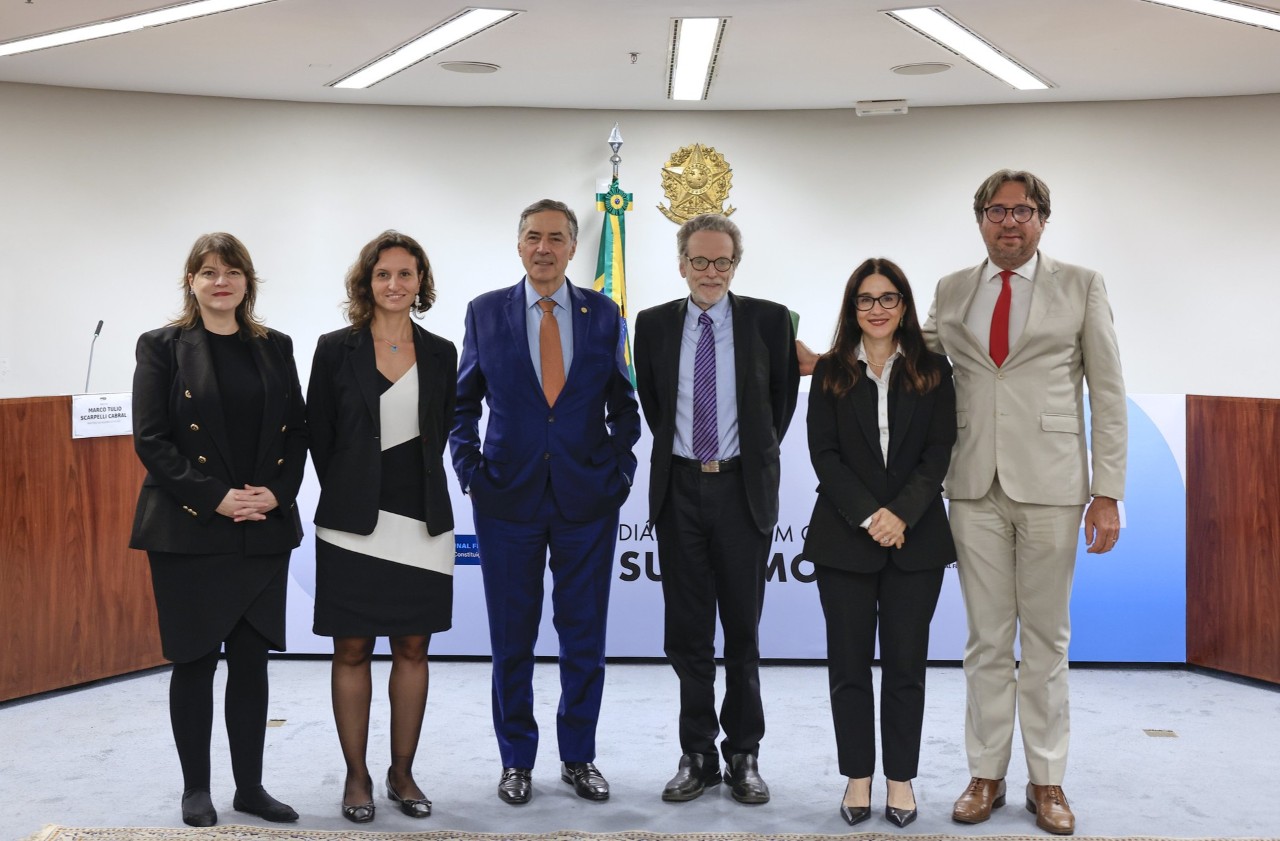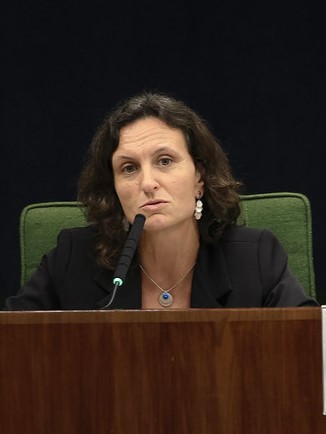The Judiciary Discusses Climate Justice and Environmental Protection as Fundamental Rights
The COP30 Presidency emphasized the importance of climate action as an ethical and transversal issue, highlighting the judiciary’s role in ensuring a safe and just climate future

On Wednesday, June 4, Brasil’s Supreme Federal Court (Supremo Tribunal Federal/STF) hosted national and international experts for a dialogue on climate justice. Attendees included the President of the STF, Minister Luís Roberto Barroso; Alice Amorim, Director of Programs for the COP30 Presidency; Marco Tulio Scarpelli Cabral, head of the Forests Unit for COP30 at the Ministry of Foreign Affairs (Ministério das Relações Exteriores/MRE); and Thomas Pogge, a philosopher and professor at Yale University. Law students also attended the event, which reaffirmed the crucial role of justice institutions in building a safe, fair, and sustainable climate future.
During the discussion, Alice Amorim, who represented the COP30 Presidency, stated that climate change is not only an environmental issue, but also a transversal development issue. "All areas — from health to education, from infrastructure to fiscal policy — need to prioritize climate in decision-making," she said.
Amorim stressed that COP30, to be held in Belém this November, takes a value- and behavior-centered approach with an emphasis on the urgency of climate action. “Since COP28, multiple countries have agreed upon recommendations and reached a consensus. Therefore, remaining inactive at this point is not neutral — it is an ethical choice,” warned the conference presidency's programs director. She believes that the COP provides the opportunity to act ethically, hence the relevance of the Judiciary.

"Since COP28, multiple countries have agreed upon recommendations and reached a consensus. Therefore, remaining inactive at this point is not neutral — it is an ethical choice"
— Alice Amorim, director of Programs for the COP30 Presidency
STF President Minister Luís Roberto Barroso eloquently spoke about the role of constitutional courts in climate action. "Climate change is not just an intergenerational issue. It already impacts crucial rights here and now,” he stated. Barroso noted recent tragedies in Brasil, including the historic drought in the Amazônia and the floods in Rio Grande do Sul last year.
The STF president defended judicial action in the face of the “persistent inertia of political powers,” emphasizing that it is the judiciary's role to protect the most vulnerable. "Environmental protection is a fundamental right, and the courts must act to guarantee this right when other branches of government fail," he said.
The head of the Forests Unit for COP30 at the Ministry of Foreign Affairs presented an overview of climate justice and multilateralism, emphasizing the importance of incorporating equity principles into global climate negotiations. Cabral also explained the goals of the "United for Our Forests" coalition and the Tropical Forest Finance Facility (Fundo Florestas Tropicais para Sempre/TFFF). These initiatives aim to strengthen forest sustainability and restoration by establishing new international financing mechanisms. The coalition and fund will compensate countries for their efforts in protecting forests and controlling deforestation, thereby aligning climate action with economic sustainability.
Professor Thomas Pogge presented an analysis of the political and economic barriers to climate action. He noted the outsized influence of major fossil fuel reserve holders. He proposed creating an Ecological Impact Fund focused on the Global South that would reward green innovations benefiting biodiversity and vulnerable populations.
According to Pogge, the judiciary plays a crucial role in counterbalancing economic pressures. "While the political system can be captured by special interests, the judiciary must act fairly, considering the rights of all equally — the wealthy and the poor, the present and the future," he said.
An ethical stocktake
During the STF event, Alice Amorim presented the Global Ethical Stocktake (GES) proposal. This project includes a series of gatherings in various regions of the world that bring together philosophers, scientists, jurists, and artists to discuss climate change from an ethical perspective. The Stocktake is a project of Brasil’s Minister of the Environment, Marina Silva, in collaboration with the Secretary-General of the United Nations, António Guterres, and President Lula. "Everyone can take part. It is a "Mutirão global" (global collective effort) for more just and equitable solutions," she said.
The COP30 Presidency believes that the conference is a historic opportunity to renew commitments and increase climate action in a just manner. The call has been made for a global mobilization that unites voices, resources, knowledge, and institutions to collectively construct tangible outcomes. "You don't need to be inside the negotiations to be part of the change. We can all contribute what we have and who we are," said Alice Amorim.
» More information about the Global Ethical Stocktake (GES) will be available soon on the COP30 official website.
English Version: Trad. Bárbara Menezes
Proofreading by Enrique Villamil
